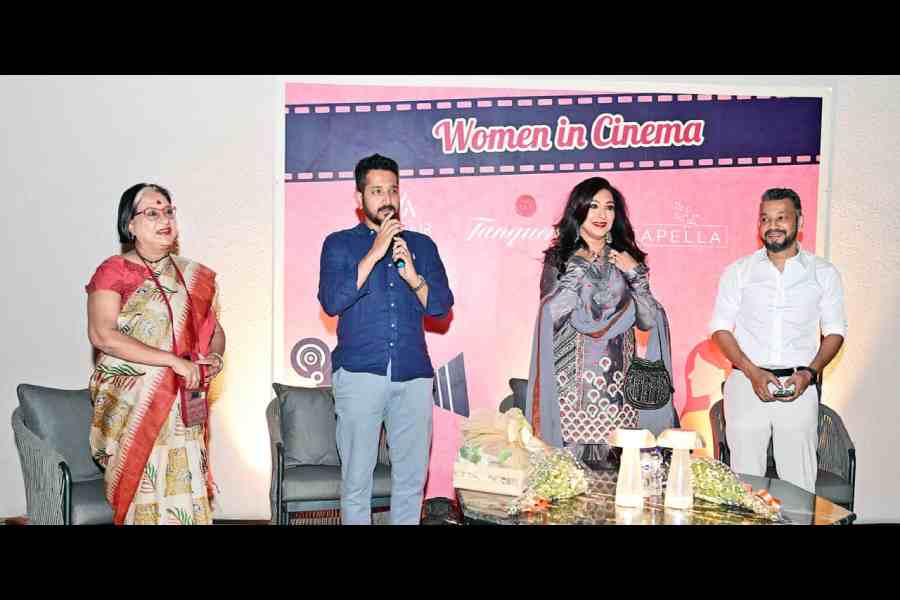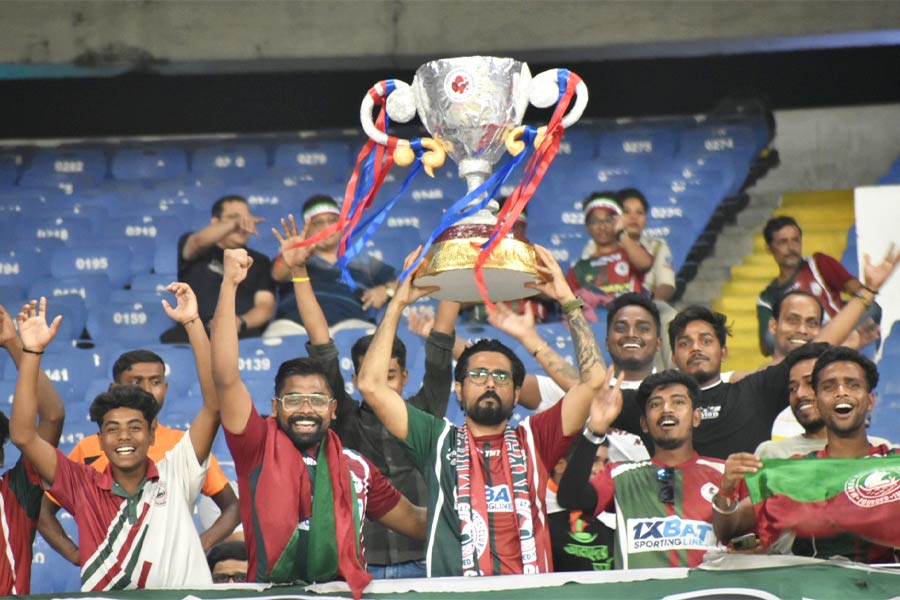Actress Richa Sharma hosted a panel discussion on March 10 at Capella in AltAir to celebrate International Women’s Day, in association with Tanqueray. Actors Rituparna Sengupta and Parambrata Chattopadhyay, and filmmakers Sudeshna Roy and Satrajit Sen graced the panel that was moderated by Priyanka Roy. The sundowner event was attended by people from various walks of life. Starting the discussion with their perception on the celebration of International Women’s Day, the conversation steered towards the legacy that women left behind in the film industry, the significant roles that they played in their heroes’ lives, the changes in work opportunities with changing times and their experiences at the ground level. The panel also interestingly spoke about the significance of a vamp, and contrastingly, deifying a woman’s character, the perception of society and the menace called ‘pay parity’. Excerpts:
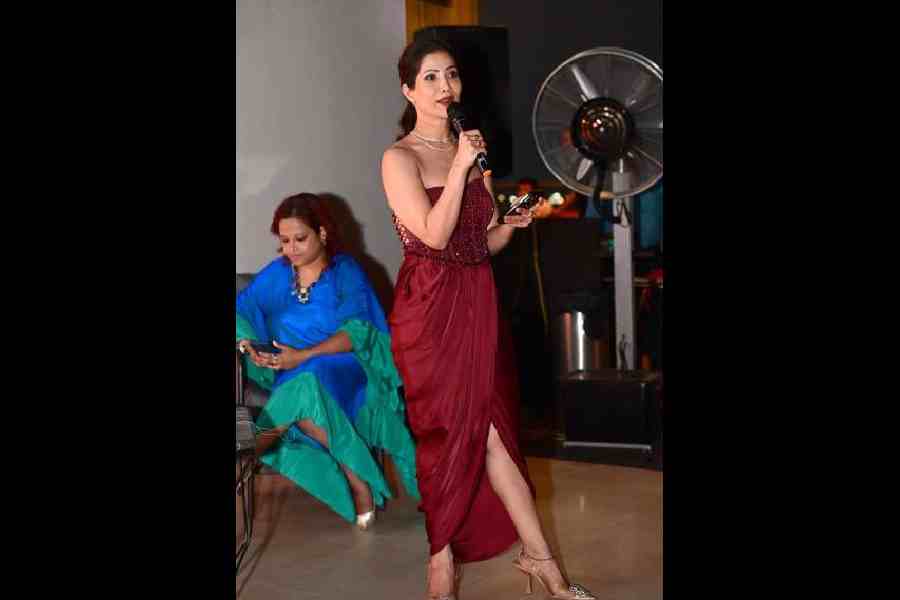
Richa Sharma, the host of the event, said: “Rather than celebrating Women’s Day over cocktails and dinner like I usually do, I was suggested by a friend to do a different kind of event. So, I hosted this panel discussion on a topic related to women and asked friends from the fraternity to talk on it, who are much experienced and wonderful speakers. My heartfelt thanks to them for agreeing. Being the host, I did not want to be a part of the panel. Thanks to Capella and Rinkie for being our beverage partner,” said Richa. She read out a self-composed Hindi poem to start off the session
What does Women’s Day mean to you?
Sudeshna: It is true that there should not be one day to commemorate women, every day should be Women’s Day. But we also live 365 days and celebrate our birthday on a specific day. In a way, Women’s Day is a birthday for women’s rights. It was actually in 1975 when this day was announced but this fight started much before when women fought for equal pay, rights and respect, and that battle is still on. It is not only in cinema but in every walk of life. Therefore we have to keep reiterating, we have to keep talking about it all the time.
Parambrata: I was completely unaware of this idea until I reached about 14 years of age. That was the first time we were told from school to do something on Women’s Day. It was in 1995. I went back home and told my mom. She said: ‘Your father and I celebrated Women’s Day the day we decided that if I am dropping you to school then your father is picking you up from school. We celebrated it that day when we decided that we are sharing your responsibility 50-50 and it is not just left to me.’ For her, Women’s Day was every day, she lived by example. Having said that, today where I stand, the way I look at the world around me, I think, with gang-rapes of women happening all around us... a foreign tourist was gang-raped by Indian men a few days ago, who thought it was an act of great machismo; song lines like Tandoori murgi hoon yaar gatka le saiyyan alcohol se… still being popular, I think it is important for one day to be celebrated at least to remind those alpha males inside us that it is important to discuss women’s rights.
Satrajit: In my life, my mother has been a very strong influence. She was just 65 when she passed away. I have seen my father play second fiddle because he has been an educationist and has gone around the world teaching at universities but there was no problem in dividing the responsibilities between my dad and my mother. I have a daughter now of 20 years and I was employed for many years but since the time I ventured out on my own, my wife has been a full-time corporate professional. I have been a very hands-on dad. We have shared responsibilities and my daughter has grown up to be a fiercely independent girl. I don’t thrust my decisions upon them. The kind of times we are passing through, why not spend one day where we celebrate them?
Rituparna: As a woman, I always feel confident from inside to do certain things in my own way now but this confidence was not there before. Through the years, and through my hard work, I have learnt a lot of things. As far as my childhood is concerned, I was raised by some strong women who had a lot of courage in them and at the same time a lot of insecurities in them because society was at that time like that. It was a combination of both. Now, things have changed a lot.
Opportunity and diversity for women working in cinema:
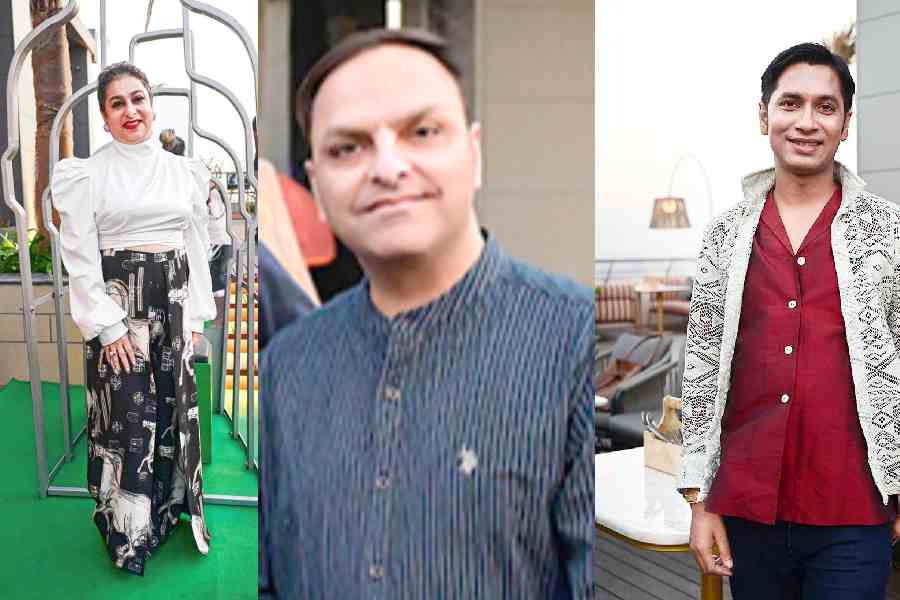
Gunnu Ahluwalia, Amit Agarwal, Avirup Sengupta
Rituparna: There’s a lot of scope for women in cinema and cinema has evolved a lot from those days to these days. I think women had a role to play time immemorially in cinema. If we look back, we have instances of Nargisji, Devika Rani, Kanan Devi, Sumitra Devi and Shabana Azmi, Smita Patil, Sreela Majumder, Suchitra Sen and Deepti Naval. These actors made a statement in cinema despite the complete domination of the male ego or the male supremacy we had in cinema. To battle that and to make their presence felt was a huge thing. I think there has been a footprint of women in cinema for a very long time.
Sudeshna: Rajesh Khanna became Rajesh Khanna because Asha Parekh agreed to work with him. Uttam Kumar was helped a lot by Bharati Debi initially. He was a newcomer and she was a senior. Therefore, women had a long hand in it.
Rituparna: There’s a lot of scope for women right now and cinema has evolved from those days to these days. At that time, sometimes women characters were recognised and sometimes they were not recognised in a very male-dominant film. They were used as objects. Then the vamp came and that created a lot of noise because of the Bindus of the world and the Helens… that kind of a character created some sort of a protest. They were kind of a rebel. They showed how a woman can be this and also take a man and destroy him. It was a voice that started parallelly.
Parambrata: Women are not treated equally till today. We have made that much progress where a woman can be CEO or the creative head of a particular channel or a film producing studio but the saddest part is that you’re gonna end up listening to the same woman say we gotta make male-dominated films because that’s the cash cow. It is sad when a woman has to say it. It is not equal. Let’s face it first. Also, the representation of women in our films. That also directs the participation of women in our films. In Indian cinema, it comes from our socio-cultural dynamic that women are portrayed in our films as Goddesses, ideal marriage material or the vamp. I would rather subscribe to categorising women as vamps on screen than deifying them as devis because a vamp is someone who has desires and agency just like a man. So, a character of a vamp asks for more equality and asks for being treated as a human being. In case of the deified women on screen, the agency is taken away from them and we put the agency in the hands of certain men of class and caste in the society where that Goddess is not supposed to have any sexual desire and not supposed to have anything to do that a normal man does. For me, I think a vamp is a step towards equality rather than a Goddess. Because films reach out to so many people, women should be treated as nothing less than equals, not devis.
Sudeshna: Things were not as bleak as they were 20 years back. In the last 10 years, a vamp has carried a film on her shoulders and made it a cash cow in The Dirty Picture.
Parambrata: I think right now we are regressing a little bit.
The female CEOs are going to come and tell you this won’t earn you bucks. A Kahaani or a Dirty Picture was possible because people were saying at that time, she (Vidya Balan) is not a heroine but a hero. But there’s an inherent sexism in that.
Sudeshna: Very recently I watched another film on OTT called Kathal, where there are issues being talked about a woman police there which are very real. They talk about castism and a girl worries about marrying a guy because she is his senior. These are little things that happen in our society. When we have to get married, we have to look up to the husband. But why? Why not look straight? Why does he have to be more qualified than you?
In the last 20 years that Rituparna worked in our industry, she has worked alone. She has worked and tried and as a result, some people behind her back have made comments about her being pushy, a kind of woman who negotiates and manipulates.
Satrajit: And she has worked with so many newcomers and has given them a platform. Talking about representation of women, how many women directors do we have here and how many producers do we have? I think with women as producers now, you have the power to select what kind of subjects you want to make the film on. That’s the way forward. More women should come into the industry in various roles. We can now hand-count women in different roles…
Rituparna: Nowadays, it is great to see the female DOPs. We are used to seeing a man behind the camera and to see the women calling the shots feels great.
Parambrata: The equality we started talking about here… don’t get me wrong… it will happen the day we are able to say, ‘I don’t like the work this female DOP does’. Today if I say that, I run the risk of being called sexist. But we will reach equality when we can say that. We have to judge them on the same platform.
Sudeshna: We should be equals in our failures and success.
Has the audience become more accepting of various shades of the actress/heroine:
Sudeshna: It is changing now but in Bengal, it was always there. Suchitra Sen was a mother and a star. Supriyadi was a mother and a star. Aparna Sen was a mother and a star. Rituparna is a mother and a star. Today Bombay is following in the footsteps, where the Kareenas and Alias are still working.
Parambrata: I think the Indian audience, people who bring money into the theatres, the men specially, who unfortunately are the larger numbers, have come to accept leading ladies who have been married and have children. Kareena Kapoor is still very desirable, as far as Alia Bhatt is concerned, she is very open about the fact that she is a mother but still very desirable with leading projects in her hands. I think society deserves a little pat on the back for this progress.
Rituparna: Nowadays, people are flaunting the baby bump. When we were pregnant, it was a hush-hush thing. We couldn’t tell anyone and had to tell the producer. I was talking to an actress’s mom a few days ago and she told me that her daughter had announced her pregnancy and the director said they can’t shoot the film for five months now. So, the girl was so upset. The mother is the producer of the film and she said that she is still able to shoot. It is not a disease. I shot till the fifth month of my pregnancy.
Sudeshna: Today almost all films want a woman in the team. Not only in costume but in the directorial team. We have these ADs now who are women. Not everybody is sensitised on set. I remember we made our second film with some expletives and there was a lady in the censor board who asked me how could I allow it being a woman. I said I was in the dark! (Laughs) When a man on set uses expletives it is not a huge deal, once when I did, people criticised me.
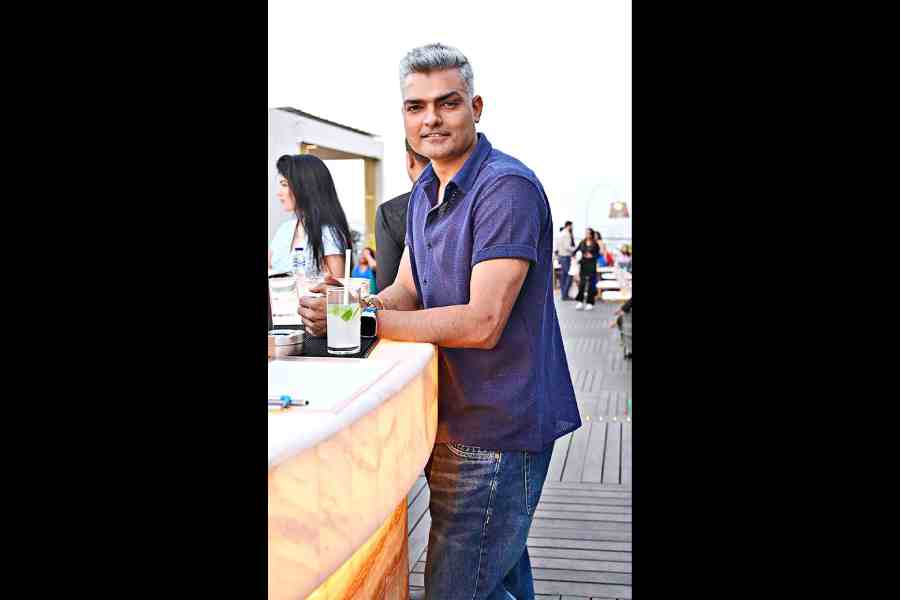
Manoj Jangid, general manager of Fairfield by Marriott Kolkata
I remember when we were inaugurating the new studios of Technician Studio, Moon Moon Sen said — ‘At last there are bathrooms here otherwise I had to go to Tolly (Club)!’ This is happening because more women are working in this field.
Pay parity...
Sudeshna: On television, women get more and it is women-driven. I may not agree with the stories they do.
Parambrata: I was doing a film where a woman charged one rupee more than I did. I said it is fair because her’s is the central character in the film. It is not about who is a greater star but who has more screen time and is playing the central character. We have made progress but the problem still lies in our mindset. Every step we take in the media, I am saying media because it reaches out to people, irrespective of television or films, we need to be very careful.


